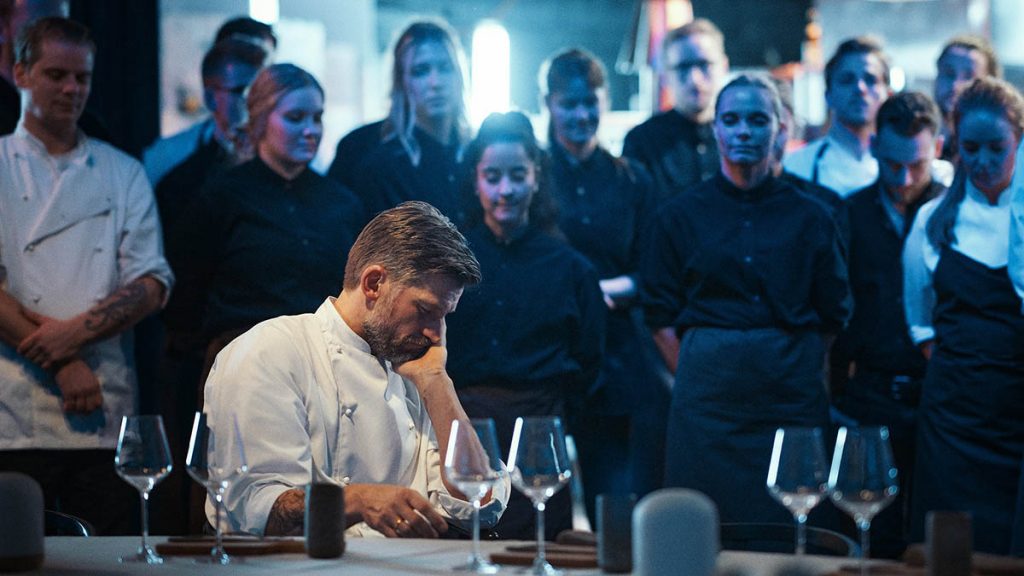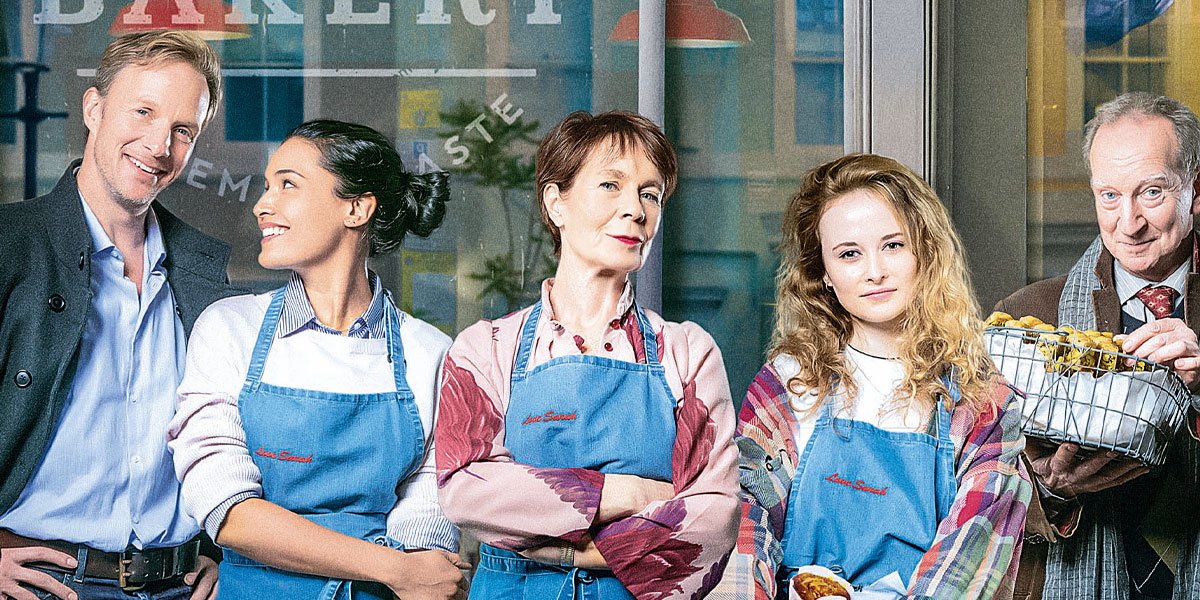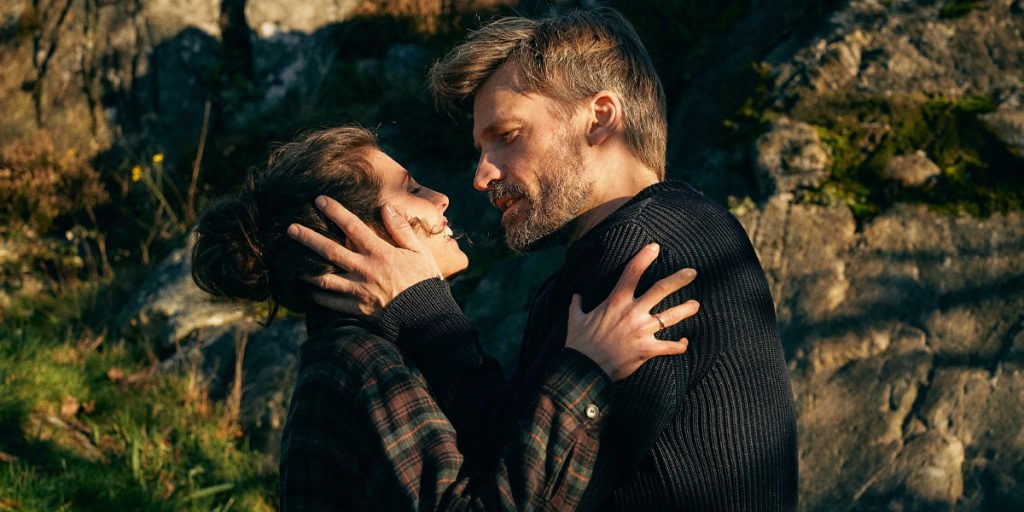A Taste of Hunger wanders aimlessly between narrative directions without exploring the competitive culinary world enough, despite having enough time to do so.
‘If you ask me what I want, I’ll tell you. I want everything.’ Opening with these words by American novelist Kathy Acker, A Taste of Hunger dives right into a visually satisfying portrayal of the culinary world, with an aesthetic presentation that’s bound to placate your eyes’ hunger, but to make your stomach hungry. Enigmatic background music fills the ears as we wait in anticipation while a woman bites into a spoonful of a rather delightful-looking preparation. Her words, for a layman, are educational and intriguing. She refers to four flavours: fattiness, freshness, sweetness, and saltiness. And then she introduces deconstructed food. She suggests the chef lay the ingredients around the plate with seasoned fig in the middle and allow the guest to assemble their version of the preparation.
Just a few lines of dialogue, and the film’s already intoxicating. Michael Bublé’s “Feeling Good” starts playing in the background as we’re introduced to the future – where there’s a restaurant. It’s possibly opening night, and, with the display of knives cutting into seafood, or plates being artistically designed before being sent out, the world has become even more engrossing. A beautiful overhead shot is chosen for when the guests at the roundtable are all presented their food at the same exact moment, and then the music crescendoes before the film’s name appears. It tells the audience that this will possibly be a journey into what goes behind making an ambient restaurant, offering an insider’s look at the culinary world.
The ninety-odd minutes that follow barely live up to that expectation. There are literally just two scenes of food preparation since then, both endlessly satisfying with their presentation of cooking, but not nearly enough for a viewer who’s looking for more of that. Till the name of the film appears, we’ve just seen a male chef and a woman guiding him, and the chef’s restaurant’s opening night. Now comes the time for introductions, and we learn that they’re a couple, Carsten (Nikolaj Coster-Waldau), who is a chef, and Maggie (Katrine Greis-Rosenthal), who is possibly the co-owner of the restaurant, because she doesn’t seem involved in the kitchen much. The story unfolds in a non-linear manner, with the present-day arc focusing on how a chef at the restaurant made a mistake and served bad food to a possible Michelin judge. Meanwhile, their past life unfolds in the form of chapters, each named after a flavour, which focuses on key events in the couple’s marriage, primarily.
I personally enjoy an emotional journey narrative more than almost any other story out there, but something about A Taste of Hunger feels off. There’s primarily a pacing issue, in that the weight given to the key events seems flawed with respect to the story the film wants to apparently tell. There’s an entire chapter about how Maggie, when once distracted, ended up leaving her two kids in the forest, and one of them got lost. It’s clear that this is important because it was the first time her external business interfered with her being a responsible mother, but it feels unnecessarily dragged out once you realize the scale of the story as a whole.

The narrative isn’t accessible because the non-linearity doesn’t feel justifiable. The revelations about the past are pretty predictable, but the time it takes for the story to get to the point that clarifies what the film is about is too long. Moreover, the emotional drama shifts focus from the exploration of the competitive culinary world, which is what the film seemed to say it would be about. It’s also why the climax doesn’t leave a mark, even if it poses a pretty important question about what estranges people and what connects them. There’s a big twist at the end, but it doesn’t make sense to me, especially because the revelation isn’t built up to, and kind of just exists, like a disconnected plot-point which you have to reconcile, almost entirely on faith, that yes, something like this could logically happen.
Actually, it’s difficult to connect with the protagonists, because they aren’t fleshed out enough as people. Carsten’s personal connection with his profession is made amply clear in the way he treats cooking even for leisure. Maggie’s connection with the trade is entirely as a doting partner, it seems. The reason for the quotation with which the film opens is obvious, because Maggie goes to quite mortifying extremes to ensure she can track down the alleged Michelin judge to prevent the fall in ratings of their restaurant. However, her activities which don’t pertain to the culinary world are actually more important in the context of the story. She did something in the past, whose consequences are dealt with in the present. Even if the entire emotional thread is balanced on this action, it’s difficult to understand why exactly she would do that, beyond a very preliminary cliché explanation.
One thing that’s extremely endearing is the first chapter in the past, which shows Maggie and Carsten’s first meeting. Carsten is shown arguing with his brother over the guests’ lack of appreciation for the food the former’s prepared. It’s revealed his brother is the owner of a catering company, and Carsten is the chef. Maggie eavesdrops on their conversation, and then swoops in to suggest Carsten serve drinks till the food his brother has gone to purchase for the guests arrives. They prepare it together, and the people even enjoy it. After that, we see her convince him to prepare hot dogs with the expensive ingredients he had brought for an obviously upscale dinner. And some undeniable connection can be felt, being forged between them. The love is palpable, because of their chemistry, and it’s heartwarming to learn that they get married and open the restaurant, as Maggie sincerely believed that Carsten deserved a Michelin star.
Whatever flaws there may be in the writing, however, Daniel Alberto Claro’s cinematography is fantastic. The use of a handheld camera to make the narrative more personal is a commendable tactic. Interestingly enough, the close-ups of the characters’ faces only involve panning movement when the characters are tense or feeling anything intensely, and are a little more zoomed out, and usually still with one angle, when there’s a patient conversation between two characters. The close-up of the food is of course extremely visually pleasing, with minimal camera motion to not distract from the aesthetics of presentation. There aren’t many tracking shots, but a few are used to accentuate tension at the events of the evening, like Maggie rushing into the restaurant looking for Carsten, after putting the kids to bed, while the camera follows her from afar. It takes an impersonal view, but this way the viewer projects themselves, and occupies the space left by the camera’s movement, thus effectively making the scene personal. The colour palette is particularly effective in the scene where Carsten looks out the window while smoking as the red colour floods the apartment, embodying his frame of mind and foreshadowing his outburst to come.
The actors do a decent enough job of portraying their characters. Katrine Greis-Rosenthal, as Maggie, beautifully embodies the undying passion which is expressed by Kathy Acker’s opening quote. The fact that she won’t stop at anything to get the Michelin star makes an impression on the mind because of Greis-Rosenthal’s amazing performance. Carsten is palpably exhausted of competition, but he’s a different person in the kitchen. Nikolaj Coster-Waldau’s eyes glow with passion, and his whole body seems to come alive, whenever his character steps into the kitchen.
When he’s telling off the chef who made the mistake, or he’s speaking about how to prepare a dish, his entire being comes alive, and this connection he shares with the art of cooking is so accessible, only because of the superior quality of acting. As mentioned earlier, the characters aren’t well fleshed enough, so the majority of the responsibility to keep the audience invested falls on the performers, but there’s only so much that they can do, and about halfway through the narrative becomes almost entirely plot-driven, although the plot itself, based on the story, seems to be character-driven.
Unlike the food that Carsten cooks, A Taste of Hunger doesn’t seem to know what it wants to be, and it gets stuck in between exploring competitive cooking and the marriage drama of a couple in turmoil. The parental relationship is never committed to, even if that’s arguably the most important aspect, given the twist that comes towards the ending. Altogether, it’s a pretty confusing emotional thread to follow, and without the breathtaking visual work and the meticulous acting, it would possibly not feel worth a watch. Nevertheless, even if the reward never seems to come, the vision is honest, and despite it getting lost in translation, A Taste of Hunger provides a somewhat satisfying viewing experience.
A Taste of Hunger is now available to watch on digital and on demand. Read our reviews of other movies and shows about food: Omnivore, The Bear Season 3, Boiling Point, The Taste of Things, La Cocina, Menus Plaisirs Les Troisgros, Criollo and Love Sarah.

 loudandclearreviews.com
loudandclearreviews.com
